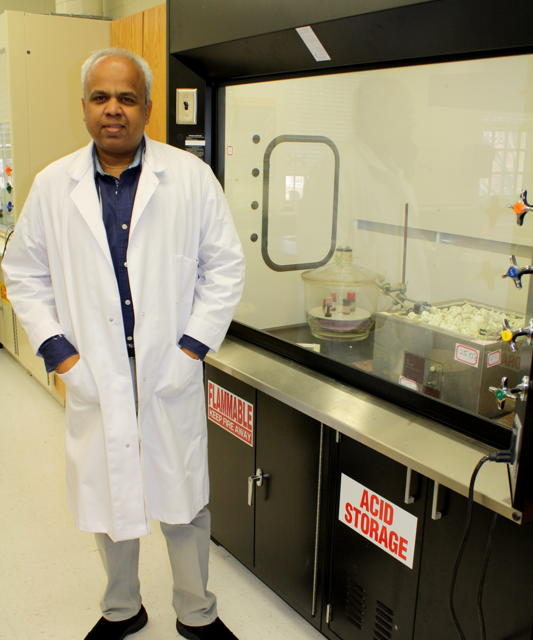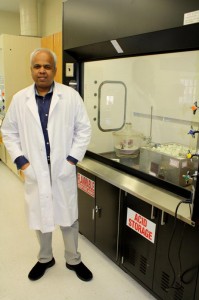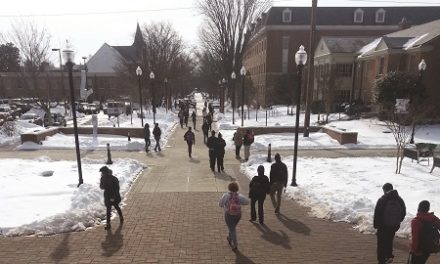By Kim Manahan (Whetstone Staff Writer)
It’s called the “weed-out†course of the science department.
Last semester, only half of the students enrolled in Organic Chemistry received a passing grade.
“It’s a requirement for all of these majors,†said Dr. Malcolm D’Souza, who instructs the class, which consists of lecture and a lab period. “It teaches a different way of thinking.â€
Students were told during the first class this semester that statistics show that in the past two years, only six of 32 students passed it, said freshman Kirshay Bowser.
Bowser, a biology major, plans to change her major to mathematics, after dropping the class during the first week of school.
“The class is based off of pictures,†Bowser said. “It was something different then we have ever done in chemistry.â€
D’Souza expected students to know the pictures the first Wednesday, Bowser said.
It’s not only at Wesley that the retention rate for Organic Chemistry is bad, D’Souza said. It is on all campuses.
Dr. Thomas Grow, a professor at Pensacola Junior College, published the grade distribution online of his Organic Chemistry Class in 2010.
Less than 10 percent of his students earned an A, 25 percent a B, more than 30 percent a C, and about 10 percent a D.
About five percent of students failed, and nearly 20 percent withdrew.
“It’s the most difficult class,†he said. “It’s like learning a new language.â€
Failing the class also causes some students to change their major.
The class is a pre-requisite for Analytical Chemistry and Cell Biology.
The class teaches reasoning, D’Souza said.
“It is not like any other course a science major has seen,†he said. “It uses a different thought process.â€
Exams count for 60 percent of the students’ final grades, and laboratory counts for 20. The final exam, which is comprehensive, takes up the final 20 percent.
Next to the grading section of his syllabus, D’Souza has a boxed-in note.
“As a science major, you are required to pass both; the laboratory and the lecture component (with at least a C) to earn credit for CH 200,†it says.
To do this, students must earn a 70 percent or higher.






